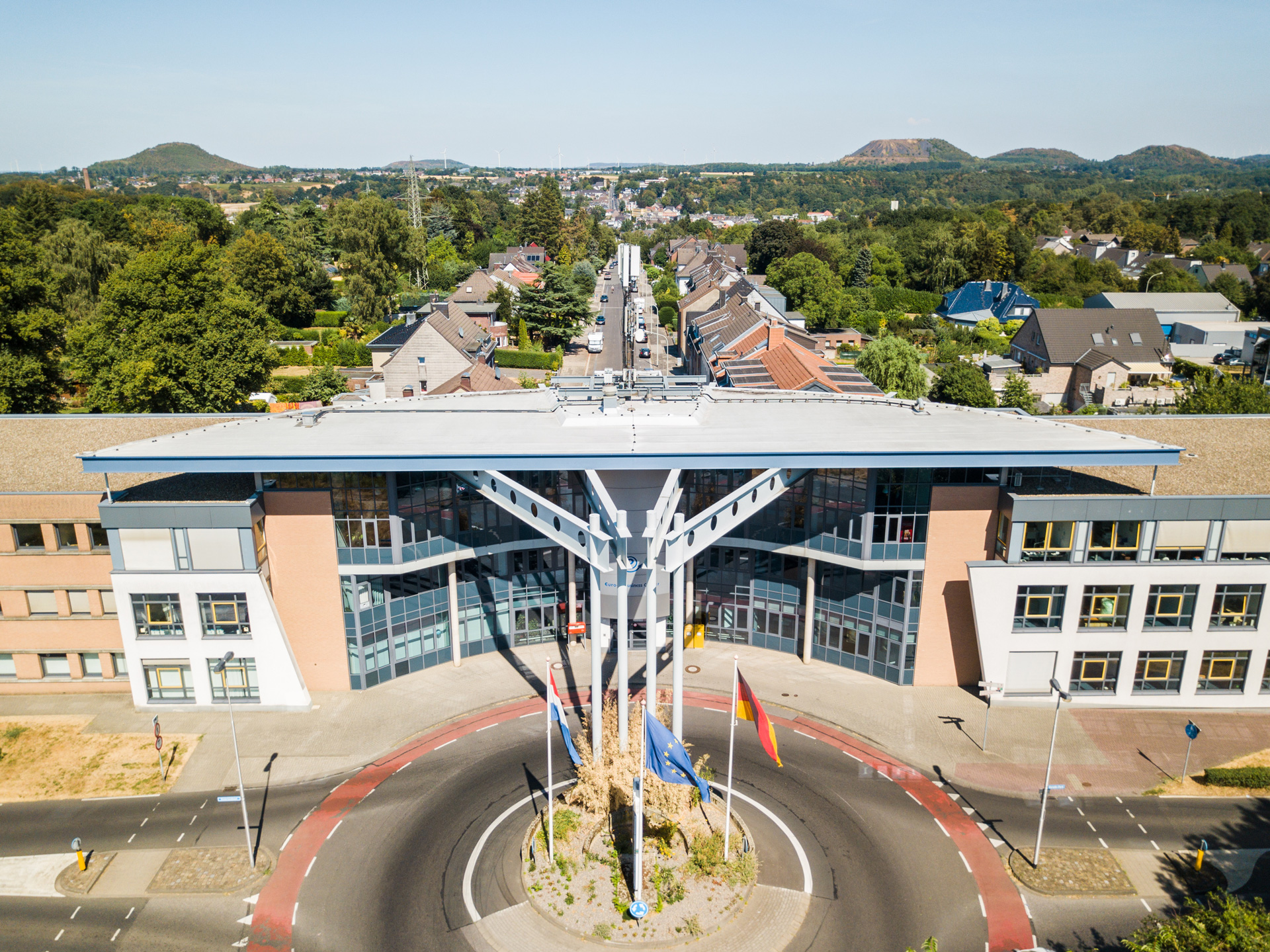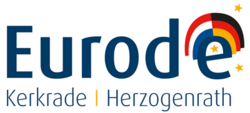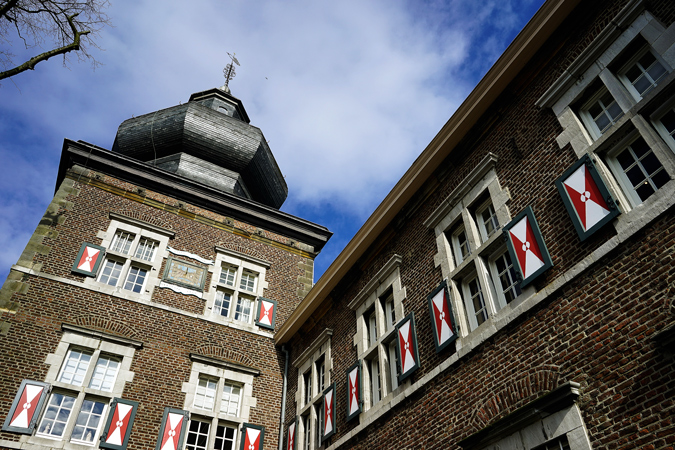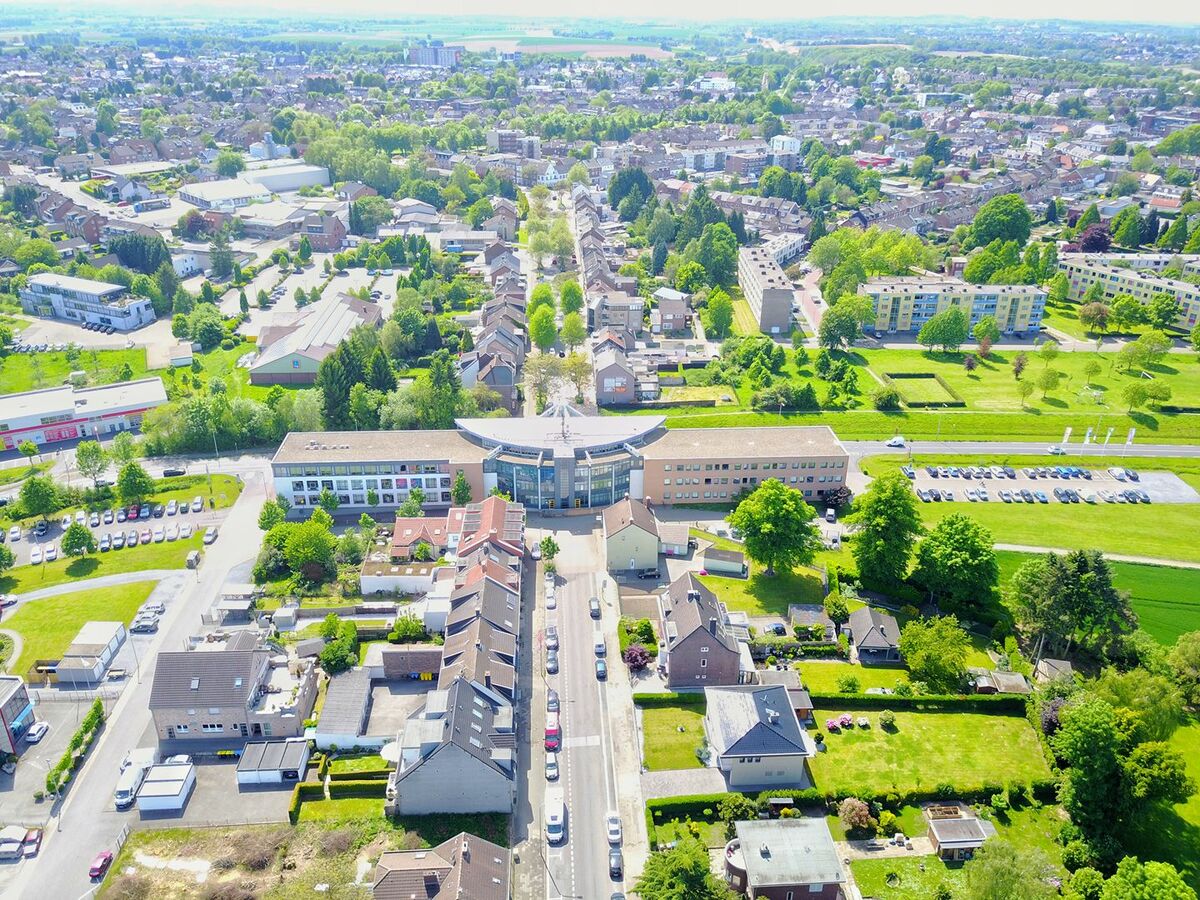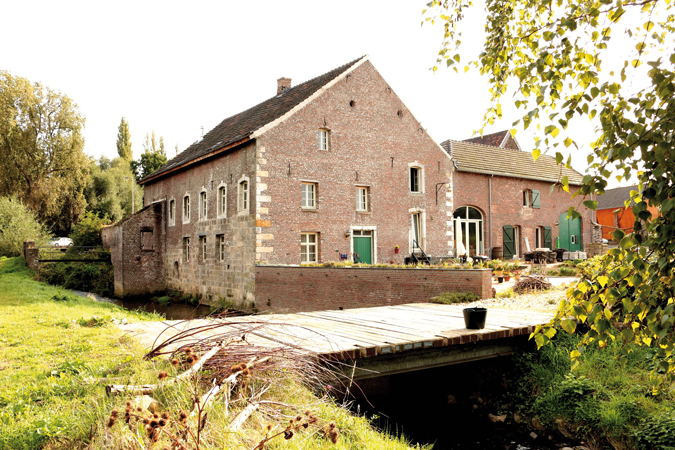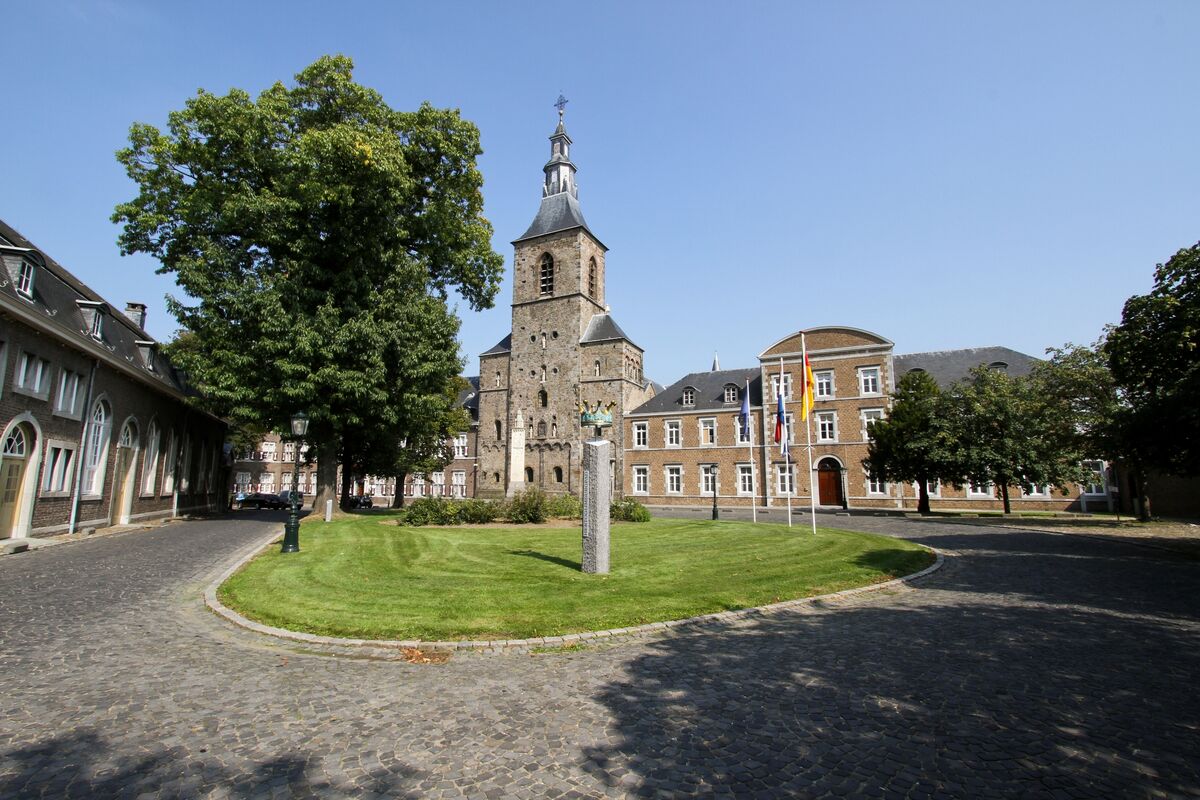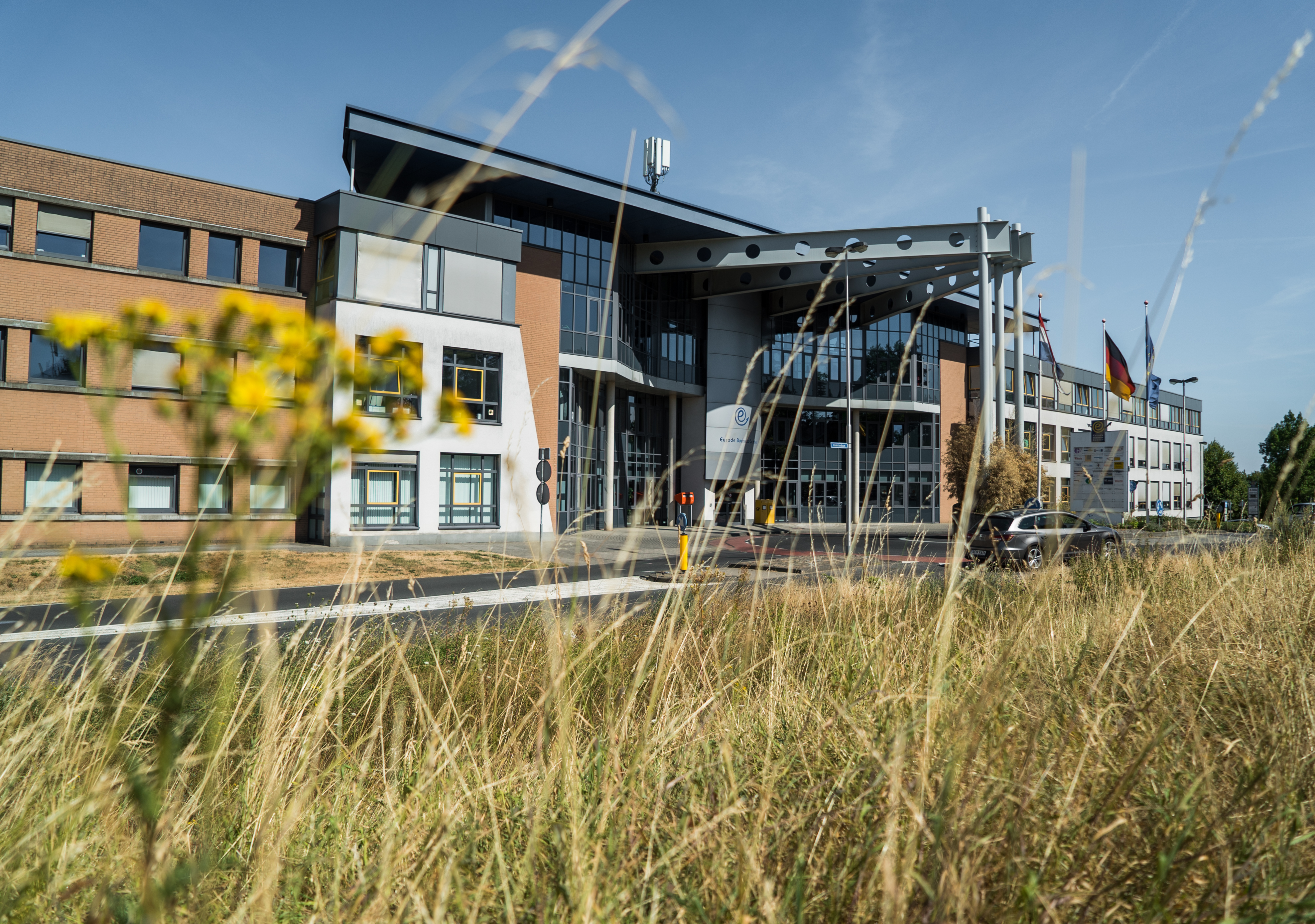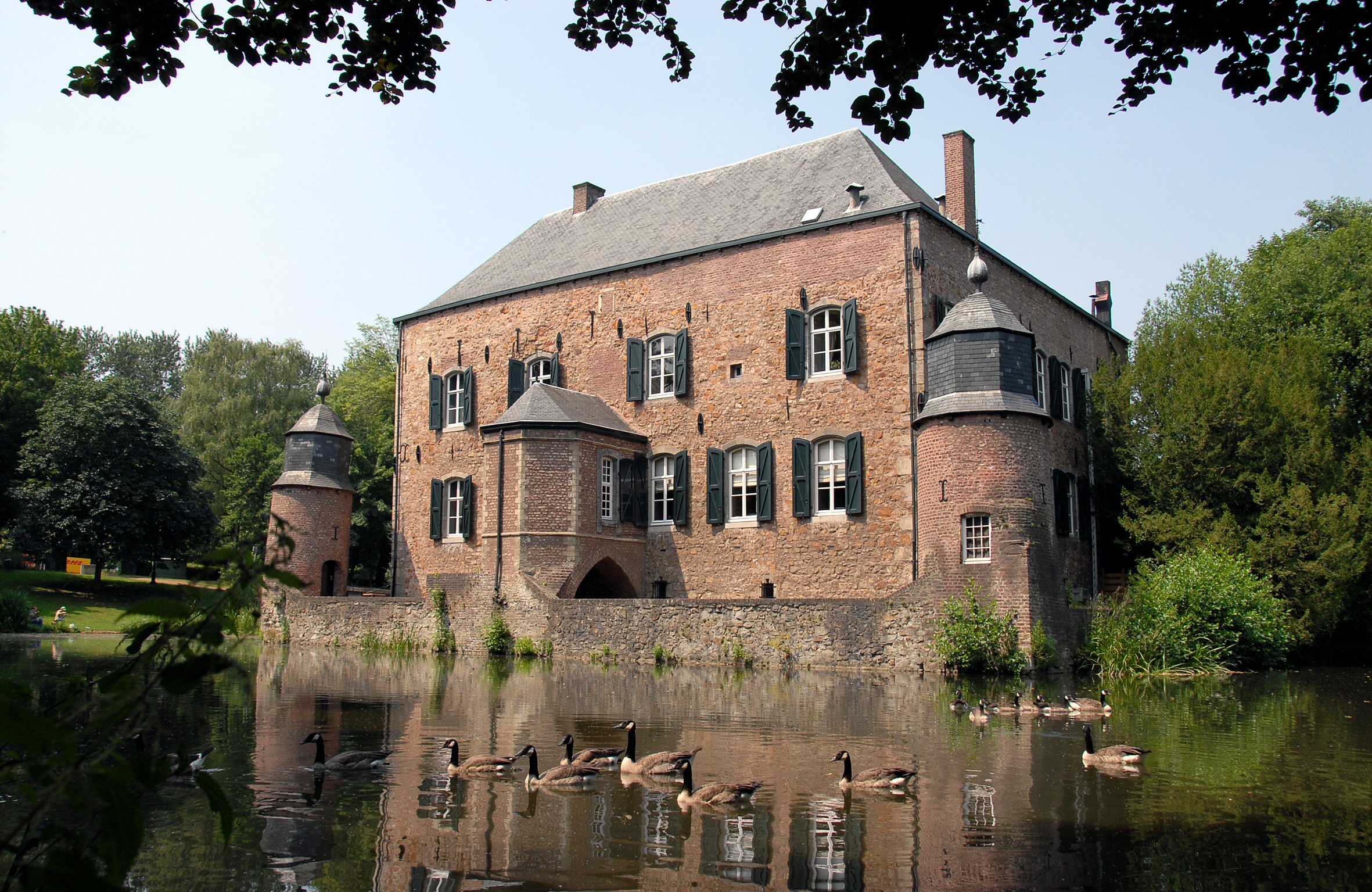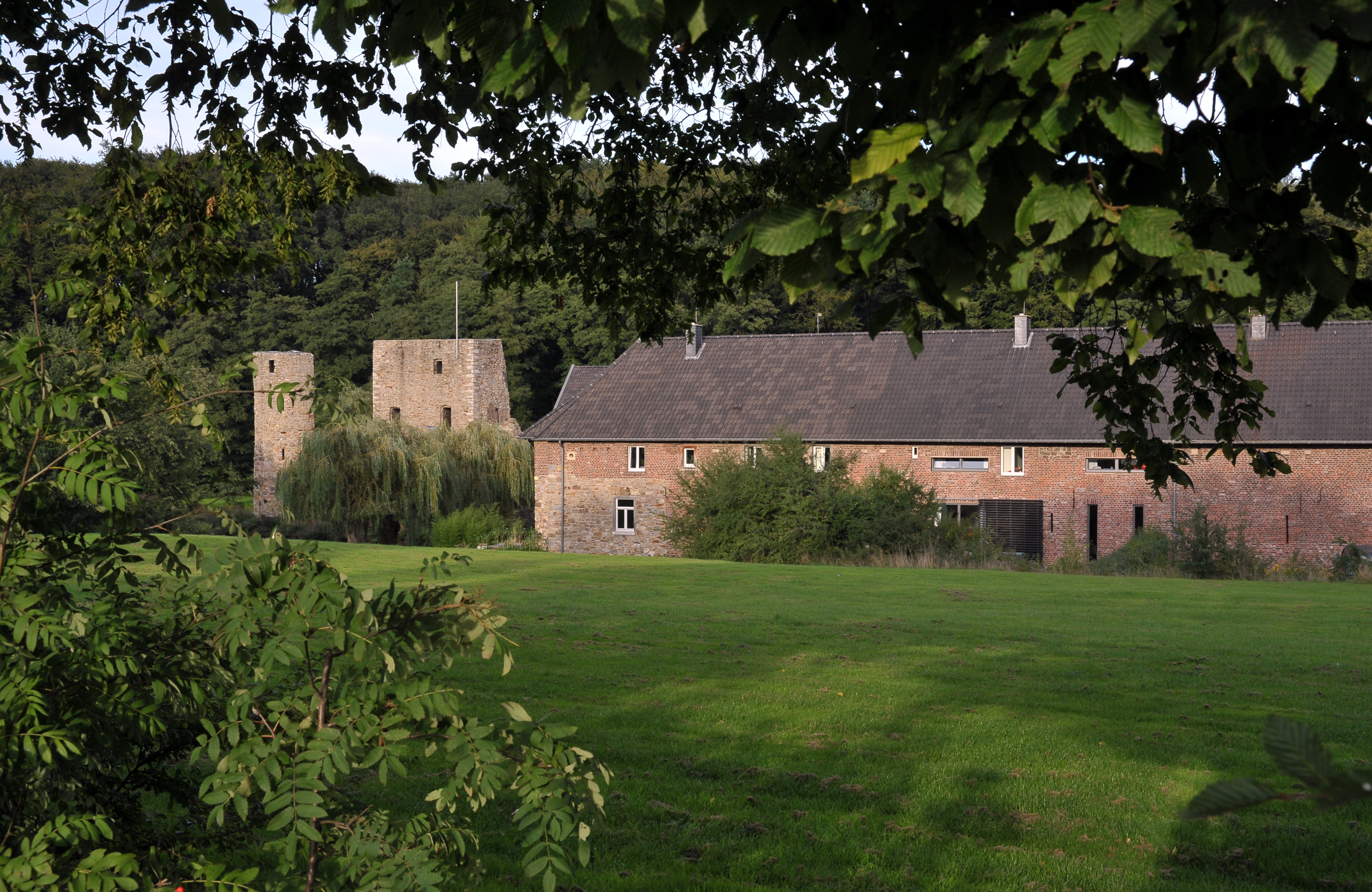Have any questions?
+44 1234 567 890
Friendship Meadow
Extension of the Friendship Meadow in cooperation with the Bürgerstiftung Herzogenrath
On the initiative of the Bürgerstiftung Herzogenrath, an ecological project for various insects was carried out on the Friendship Meadow at the Eurode Business Center (EBC) in cooperation with the public body Eurode for the promotion and nature conservation measures, which should safeguard the population of wild bees and improve their living conditions.
On April 19, 2023, the installations designed by Mr. Günter Kalinka were officially presented to the public at the Friendship Meadow. Many people involved contributed to the realization of the idea of the community foundation, which found in Mr. Kalinka an expert for wild bees.
The insect protection measures were carried out with the participation and help of children from local primary schools in Kerkrade (Bassschool St. Ursula and Herzogenrath KGS Straß).
Explanation of the protection measures for wild bees and other insects
The honey bee is known to every child and generally enjoys great popularity among the population.
In addition, there are a large number of "wild bees" that have a completely different way of life. The wild bee species differ visually in size, colour or pattern and show enormous variation in shape and appearance. Some can easily be confused with hoverflies or wasps. Wild bees are between 1.3 millimetres and three centimetres in size.
We have up to 560 different species of wild bees, which, unlike honeybees and bumblebees, do not form a "state" and live solitarily (hermit bees). The living conditions and habitat requirements of wild bees are also very different from those of honey bees used by beekeepers
The female wild bee builds her nest alone and takes care of her brood cells without the help of peers. Over the course of her four to eight week life, the female alone builds 4 to 30 brood cells and provides everything the larva needs to thrive. A cell is always completed before the next one is started.
There are even wild bees that have no breeding facility at all. These are called cuckoo bees. They sneak into other bees' wild bee nests and their larvae feed on the host bee's pollen supply. Later, the cuckoo bee hatches while the host larvae starve.
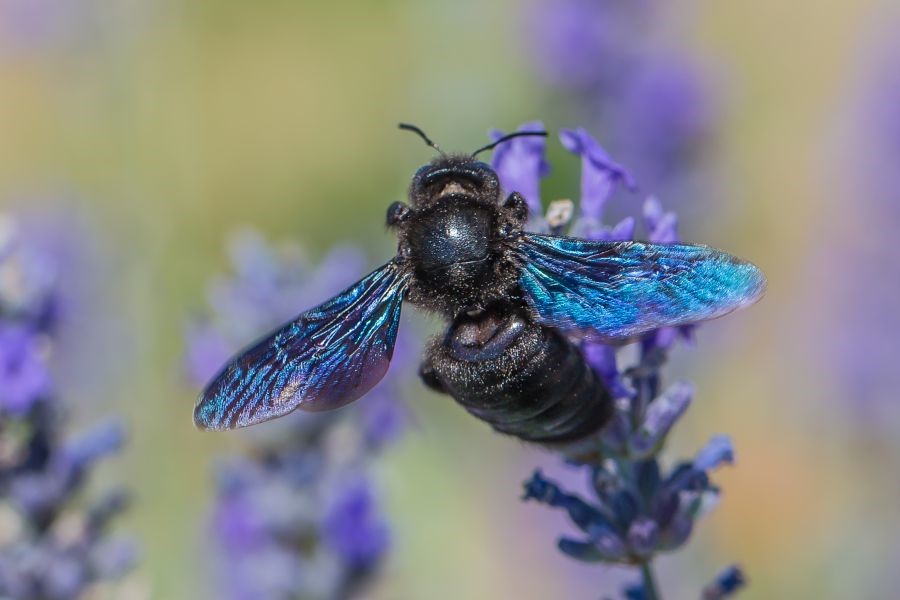
blue-black carpenter bee (Xylocopa violacea); Photo: Herwig Winter
Without wild bees and honeybees, there would be no fruits, no vegetables, and no flowers.
The monetary value of insect pollination is about 3.8 billion euros per year in Germany and more than 14 billion euros per year across Europe (according to the WWF 20.1.2021 and the University of Hohenheim 16.11.2020). In addition to honey bees, wild bees also make a major contribution to pollination.
Many wild bee species are endangered in our country.
Honey bees actually eat anything that blooms. Wild bees, on the other hand, are often food supply specialists, which means they depend on special plants. At the same time, their necessities of life are sometimes very diverse.
However, there is mainly a lack of suitable habitats and good living conditions to ensure their survival.
In parentheses:
Wild bees are completely harmless! Although some wild bees, such as the honey bee, have a stinger, they do not attack or sting humans.
Industrial agriculture, which uses a lot of pesticides, as well as the destruction of important habitats, have pushed many wild bee species to the brink of extinction. It remains to be said that the main threat to wild bees is the destruction of their natural habitat.
And this is where you can help:
Take measures to improve living conditions for wild bees and other insects. Dead trees, here called "dead wood", are extremely important to many wild bee species. As strange as it sounds and what is generally little known, dead wood is one of the most vital habitats in our nature. However, standing dead wood well exposed to the sunlight has become an extreme rarity in our country, if only because of the aesthetic ideas of the people, in which a "dead tree" does not fit.
Many insects benefit from it as food, shelter, building material or breeding ground. Wild bees like to use the old feeding corridors of beetle larvae in dead wood, such as the common “Tronkenbij.”

Horned mason bee (Osmia cornuta); Photo: Hans-Jürgen Sessner
Pillars of dead wood
These consist of three tree trunks of different lengths, which are placed vertically about 80 cm in the ground. In these logs many holes have been drilled with different diameters between 3-10 mm to a depth of about 10 cm. The trunks prepared in this way correspond to dead trees in nature, the so-called standing dead wood, and provide suitable nesting places for many wild bee species for their brood.
Deadwood scaffolding
Broad trunks were sawn from stronger tree trunks and placed in sun-exposed places on the Friendship Meadow. Holes were also drilled in the front wood of the logs in various diameters in between 3 to 10 mm and about 10 cm deep. This also provides good breeding opportunities for wild bees.
Some wild bee species specialize in soil habitability. For example, they need stones or freestanding masonry to build their nest in the niches.
Dry stone wall
A "dry stone wall" is built of stone and brick in a place exposed to the sun. The dry stone wall has a large number of niches and crevices and provides good hiding places for rock-dwelling wild bees and other insects. The brood of wild bees is also well protected here against harmful influences.
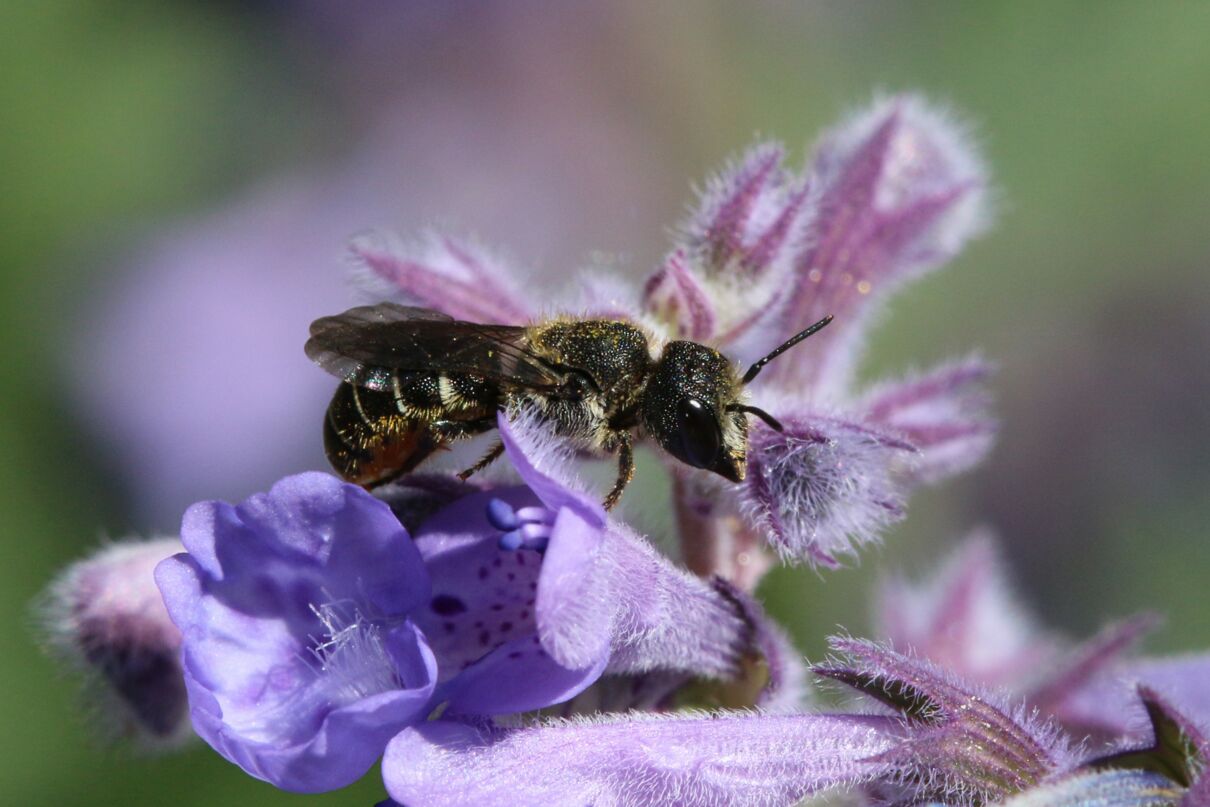
“Tronkenbij“ (Heriades truncorum), Photo: Hans-Jürgen Sessner
Opening of the Friendship Meadow
After a long delay, the time had finally come. On Thursday, November 4, 2021, the Eurode Friendship Meadow was officially opened right next to the Dutch parking lot of the Eurode Business Center. Elementary school students from KGS Straß and St. Ursula elementary school were present at the ceremony. They are involved in the further development of the Friendship Meadow.
Dr. Fleckenstein, deputy mayor of the city of Herzogenrath, and Wethouder Schneider of the municipality of Kerkrade were present at the opening. Together they unveiled the information board at the meadow. The principals of both elementary schools signed an agreement to promote cross-border cooperation.
Three new trees were also planted and the primary school students hung their own drawings matching the "Eurode Friendship Meadow" along the fence. Furthermore, KGS Straß recited a poem in both German and Dutch. The children of the Basisschool St. Ursula sang a German song.
More fruit trees and shrubs will be planted in the coming years by different elementary school classes. At this site, the children will experience nature together. Together they will build insect hotels and nesting boxes for birds and later harvest and use the fruit together. The meadow also offers space for joint celebrations, such as the International Tree Festival. The Eurode Zweckverband cordially invites everyone to spend time at the cross-border friendship meadow.
-
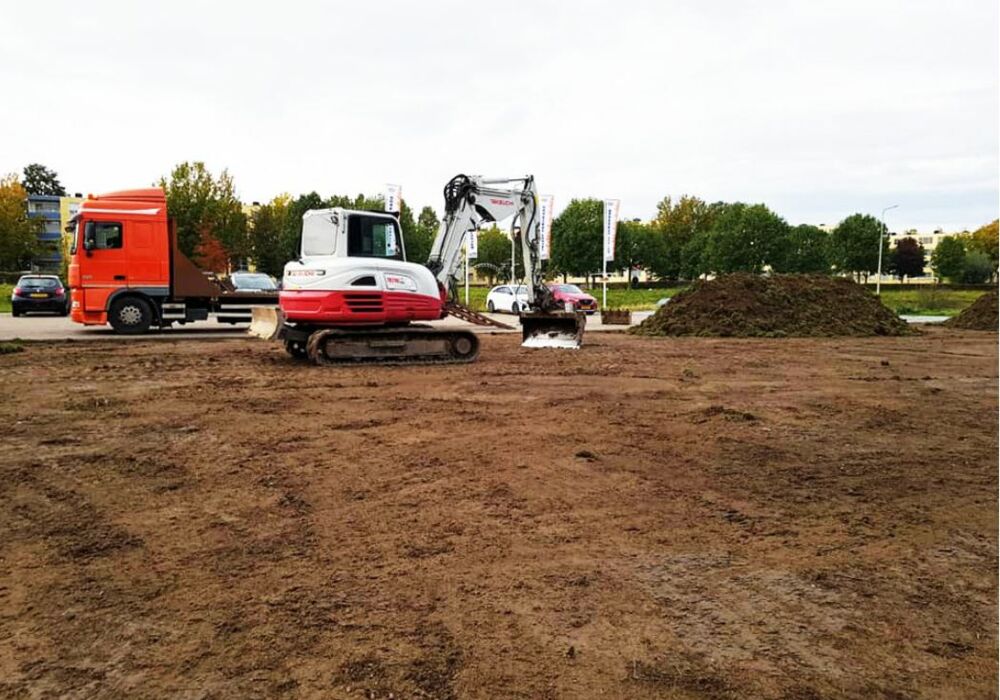 Construction of the friendship meadow
Construction of the friendship meadow -
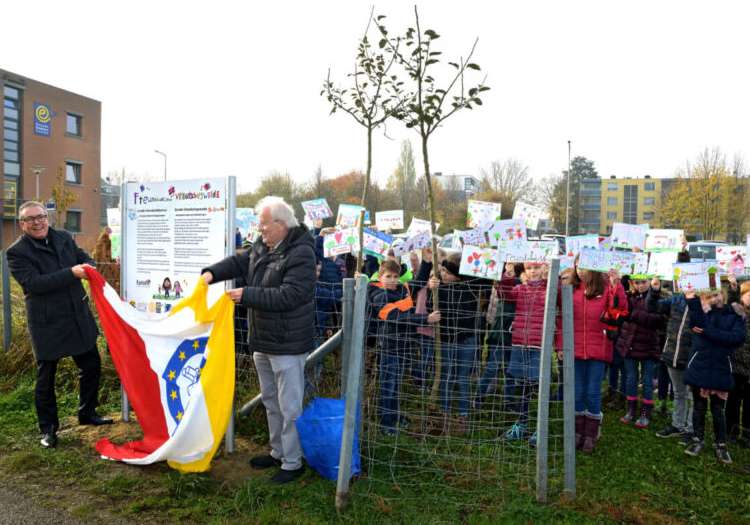 Opening of the friendship meadow
Opening of the friendship meadow
